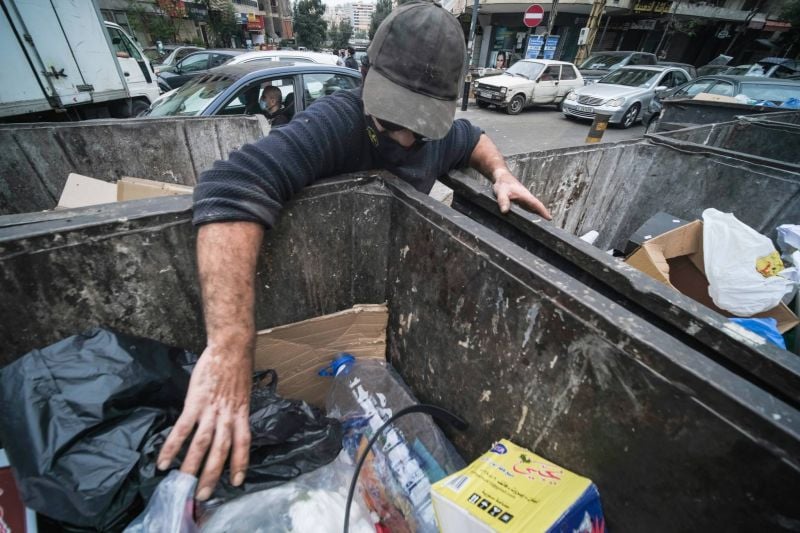
A man in Tariq al Jdideh sorts through trash during the Jan. 2021 Covid-19 country-wide lockdown. (Credit: João Sousa/L'Orient Today)
BEIRUT — A row of dumpsters sits at the edge of a triangular intersection in Bourj Hammoud, baking in the sun. In the late August heat, the garbage is fermenting and the smell is rising in the still air. A group of three adolescent boys stand next to the dumpsters, a small pile of tin at their feet. One of them is using the sharp edge of a tin can lid to cut a plastic hose into segments.
They’re cousins and, although they’re working the same site today, each one is in business for himself, selling recyclables — scrap metal, plastic, cardboard — to a nearby scrapyard for, they say, roughly LL100,000–150,000 per day (about $3 to $4.33 at the current parallel market exchange rate). The oldest boy, Ahmad, lost a cousin to this work last Friday. His cousin, Loai Ahmad al-Jado, was killed in an accident inside the towering Bourj Hammoud-Jdeideh landfill where he was collecting recyclable materials alongside his father and brother. The Internal Security Forces said Jado, a Syrian national, was born in 2013, meaning he was less than 10 years old.
An ISF spokesperson could not immediately confirm the official cause of death but Ahmad said Loai was killed when a vehicle backed into him. Habib Maalouf, a consultant for the Environment Ministry, told L’Orient Today that the vehicle was a bulldozer.
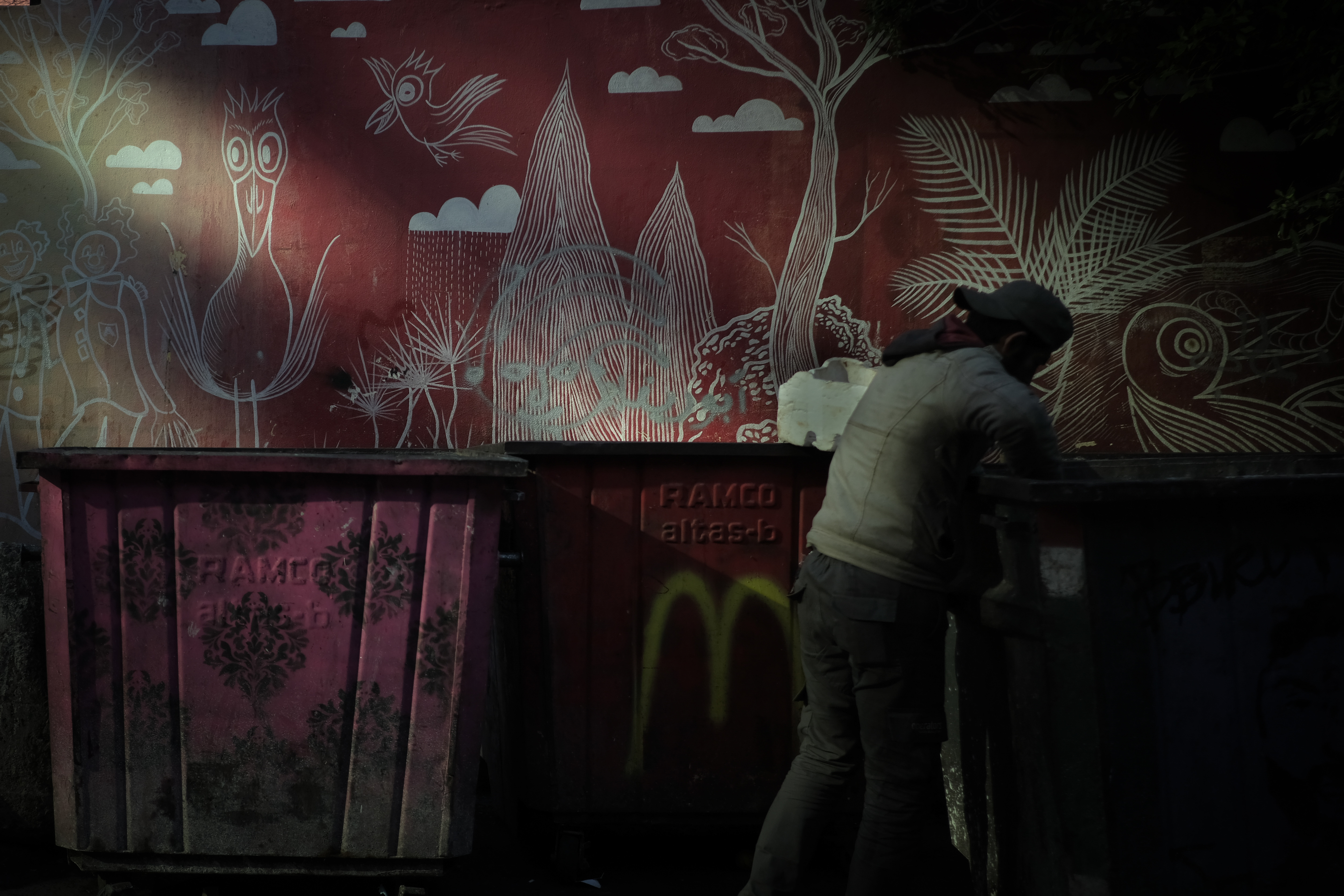 A young man looks through rubbish and waste inside a garbage container in Hamra, Beirut, on Aug. 1, 2022. (Credit: João Sousa/L'Orient Today)
A young man looks through rubbish and waste inside a garbage container in Hamra, Beirut, on Aug. 1, 2022. (Credit: João Sousa/L'Orient Today)
In the aftermath of the tragedy – the second fatality inside the landfill in four months — Ramco paused activity, just as it did after the first death in April, which also involved a Syrian waste picker being struck by a vehicle. Ramco is the company contracted by the government to collect solid waste in Beirut and Mount Lebanon and transport it to the landfill operated by another contractor, Dany Khoury. Khoury, said to be close to Free Patriotic Movement leader Gibran Bassil, has been sanctioned by the United States government for “contributing to the breakdown of the rule of law in Lebanon,” including alleged mismanagement of the landfill. Operations resumed on Monday following meetings between stakeholders convened by the caretaker Environment Minister Nasser Yassin.
Caretaker Prime Minister Najib Mikati has ordered the State Security directorate to prevent waste pickers from entering the site, and several waste pickers confirmed the facility is now closed to them, although this reporter was able to see three unguarded entrances to the landfill from the nearby road.
On Tuesday, work at the landfill was again halted for a few hours for safety reasons because waste pickers were spotted inside the facility, according to a representative for Ramco.
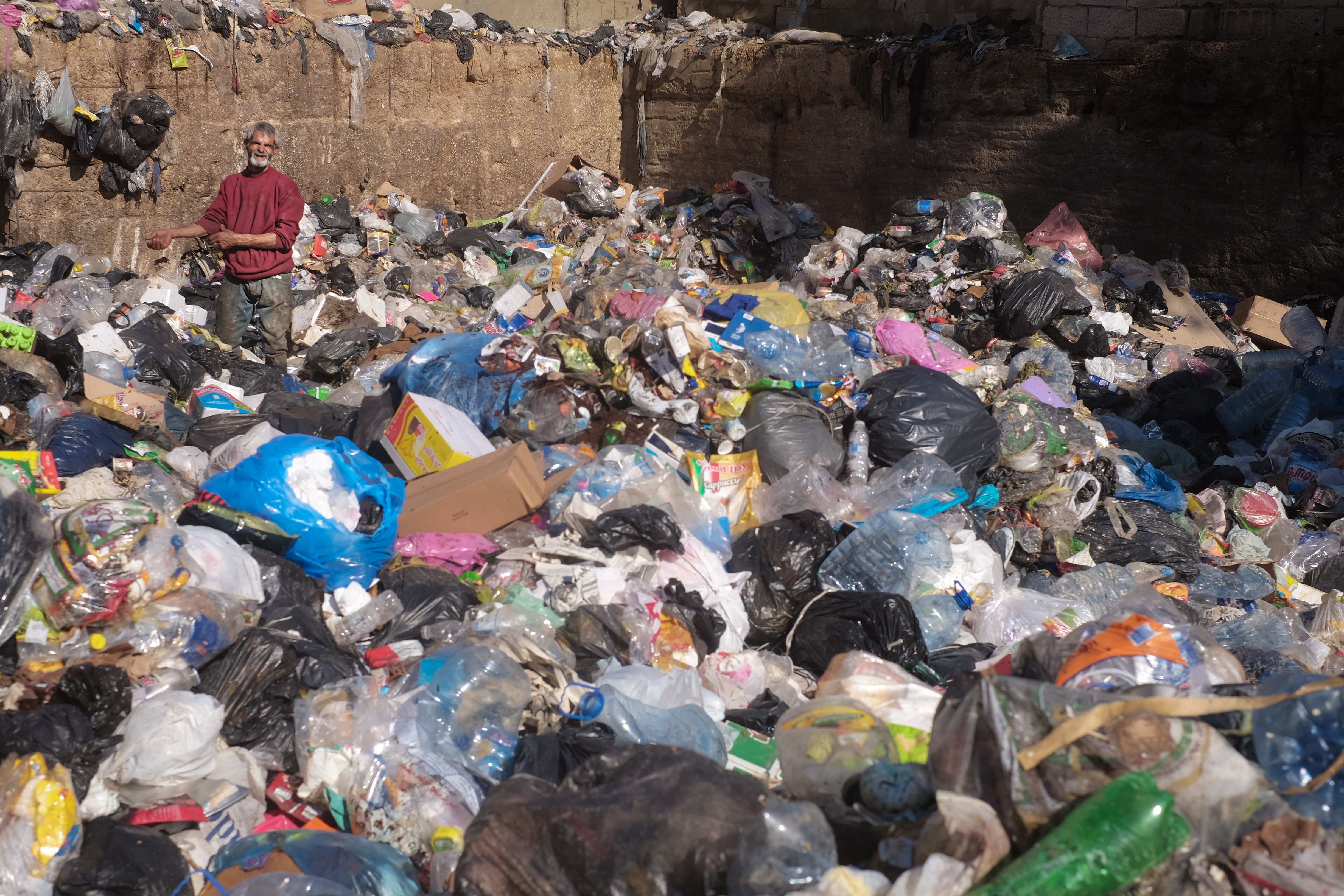 An open air dump in Sabra and Shatila camp, pictured in Nov. 2020, where daily garbage and waste are piled up in this corner. Locals often walk across the garbage, looking for any materials to use. Livestock is also taken to this dump to eat food leftovers. (Credit: João Sousa/L'Orient Today)
An open air dump in Sabra and Shatila camp, pictured in Nov. 2020, where daily garbage and waste are piled up in this corner. Locals often walk across the garbage, looking for any materials to use. Livestock is also taken to this dump to eat food leftovers. (Credit: João Sousa/L'Orient Today)
Waste picking, the act of salvaging recyclables from unsorted waste and selling them, provides an income to 15 million people worldwide, Martin Medina, an expert on the informal waste sector, estimated in 2010.
They have long been a feature of Lebanon’s landscape, but their numbers and visibility have increased in light of the economic crisis. They include the very young and the very old, of all nationalities and genders.
Jihad, from Jbeil, who asked not to be identified by his full name for privacy, used to work inside the Beirut port. But the work dried up amidst the economic crisis and, on the day of the port explosion in August 2020, he was, ironically, fortunate to have been picking through a row of dumpsters kilometers away.
Jihad is happy with his new line of work, claiming to bring in a minimum of LL500,000 (about $14.43 at the parallel market rate) per day, more than many employees in the formal economy. Two or three times a week he loads plastic, tin and other metals, nylon, cardboard, and wood onto a pickup truck owned by a local scrapyard operator who buys from waste pickers before selling to factories in Lebanon. Some Lebanese factories recycle the materials into products themselves while others process materials and then export them outside the country, according to one scrapyard employee.
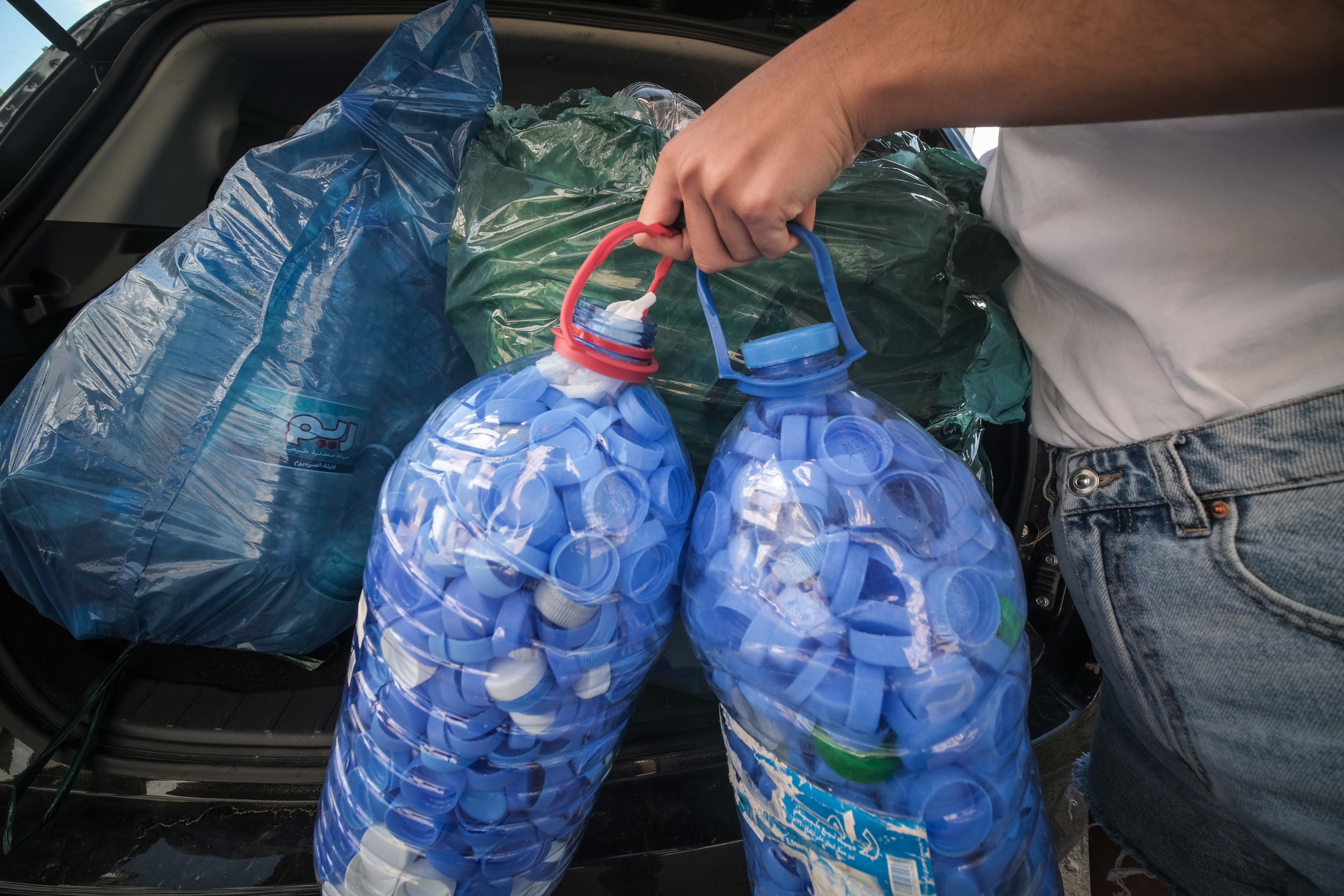 Water bottle caps are delivered at a recycling centre in Beirut. (Credit: João Sousa/L'Orient Today)
Water bottle caps are delivered at a recycling centre in Beirut. (Credit: João Sousa/L'Orient Today)
Scrap metal is one of Lebanon’s leading exports, according to Elizabeth Saleh of the American University of Beirut, who researches waste pickers, and the industry “relies heavily on informal and undocumented workers.” Lebanon’s top export markets for scrap are Turkey and Bulgaria, according to Saleh, although exports to Turkey were interrupted in 2018 and 2019 due to a minor trade war caused by Lebanon banning biscuits and detergents from Turkey.
Ninety percent of the waste he finds is saleable, Jihad says. Only ten percent is made up of organic materials like food that he cannot sell.
Other sources, however, put the proportion of organic waste in Lebanon at roughly 50 percent.
Souad Hashem, originally from the Bekaa valley but a Bourj Hammoud resident for over 50 years, uses a handheld metal hook to sort through layers of trash. She has found two practically full jars of mayonnaise today, one of them unopened. In addition to collecting saleable recyclables, she also gathers food for herself and her son. He is sick and requires her care, she said, declining to elaborate further.
A Ramco garbage truck pulls up to the dumpsters Hashem is working on, and instead of tension, there are smiles and sharing of cigarettes as the formal and informal trash workers greet each other.
Environmental management specialist Samar Khalil, a member of the Waste Management Coalition, told L’Orient Today that cooperation between the formal and informal sides of the waste removal industry is the right way forward.
Waste pickers “play a very important role in recovering valuable materials from the waste and returning them to the economy, which is pretty much needed in Lebanon,” she said. “They are more efficient and they are removing more [recyclables] than probably all the facilities at the national level that are run centrally by the government or locally by the municipalities.”
The pickers reduce the tonnage of waste that needs to be landfilled, extending the finite lifespan of Lebanon’s consistently overstuffed dumpsites, she said.
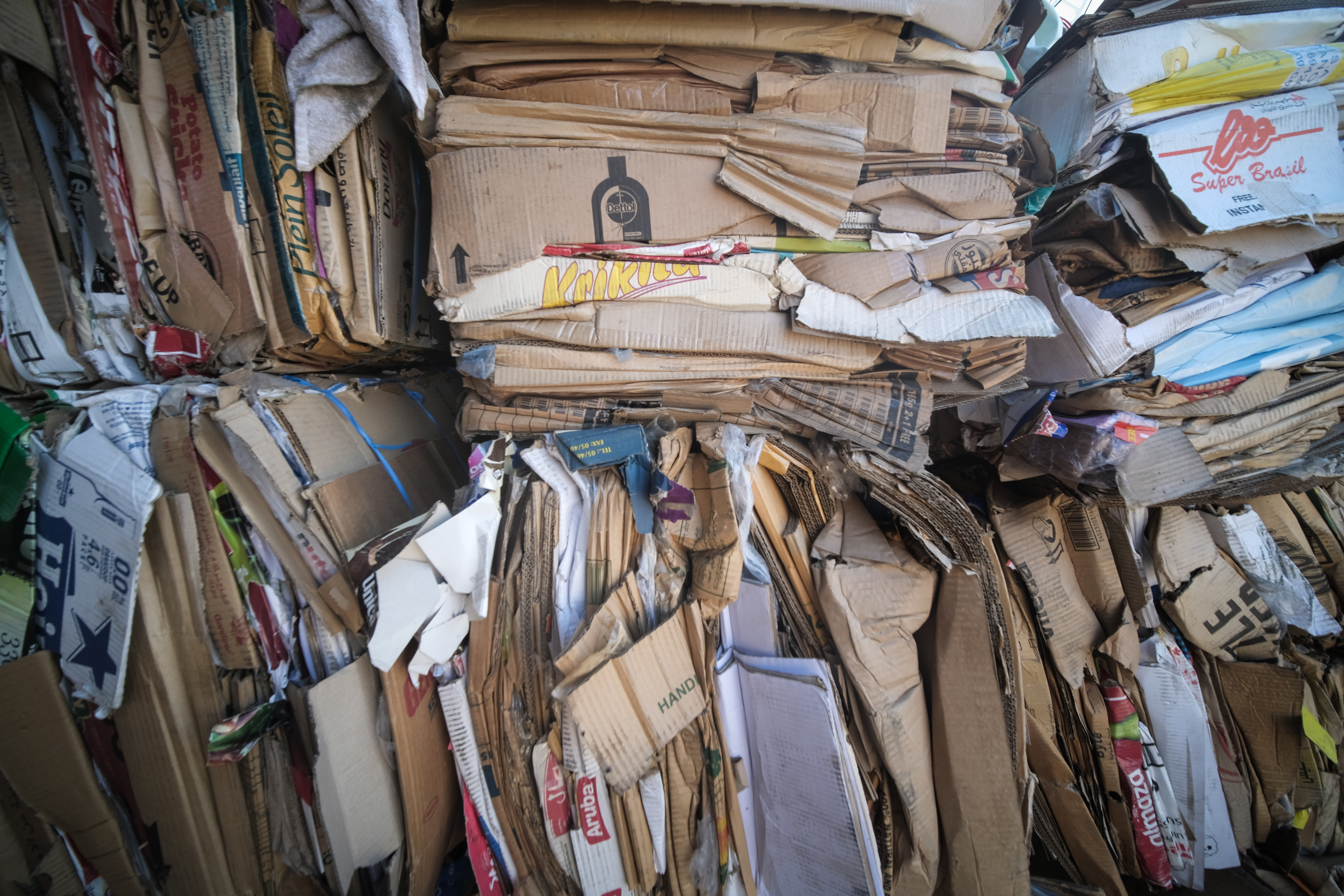 Waste pickers have long been a feature of Lebanon’s landscape, but their numbers and visibility have increased in light of the economic crisis. They include the very young and the very old, of all nationalities and genders. (Credit: João Sousa/L'Orient Today)
Waste pickers have long been a feature of Lebanon’s landscape, but their numbers and visibility have increased in light of the economic crisis. They include the very young and the very old, of all nationalities and genders. (Credit: João Sousa/L'Orient Today)
In response to the danger of picking in the landfill, rather than bringing security forces to block the pickers from entry, Khalil said, the government could work to make picking in the landfill safer, for instance by designating certain hours for the activity.
Jihad, who says he personally does not pick in the landfill, agreed, suggesting a schedule for picking would be a win-win for pickers and the landfill’s operator. He insists that Lebanese citizens be given a guaranteed place in the industry and that foreign workers not be allowed to work on their own without having a Lebanese citizen boss or partner.
Maalouf, the consultant to the Environment Ministry, also has a cooperative vision for the future. Rather than separating waste after the fact inside the landfill, he wants to see waste separated in advance at the household and municipal level, and waste pickers given employment picking up recycling from houses and selling it for fixed profit margins at regulated markets under the administration of municipalities. This, he said, would mean less landfill waste, cleaner and therefore higher value recyclables for local industry to work with, and livelihoods for pickers.
He is adamant that stationing security forces at the landfill isn’t the way forward. “We are not in favor of a security solution. First of all, because a security solution is costly and, secondly, because it does not solve the problem because these materials they are throwing away have value. Why are people going and risking their lives for them? If they weren’t selling them for value, they wouldn’t be risking their lives,” he said.
Maalouf also said he doubts security forces will be able to block pickers from the site.
As it is now, a litany of factors seems to be stacked against the success of the security forces’ mission of keeping pickers out. With the economy in freefall and the state largely failing to provide a social safety net, large numbers of people feel forced to pick through waste for survival, including children.
The landfill remains full of valuable, saleable materials that are a draw for pickers, in part because the Beirut port explosion damaged a key waste sorting facility in Karantina operated by another contractor, Jihad al-Arab. Arab, said to be close to former Prime Minister Saad Hariri, is also under United States sanctions for alleged corruption and fraud, including allegedly overbilling the government for waste services.
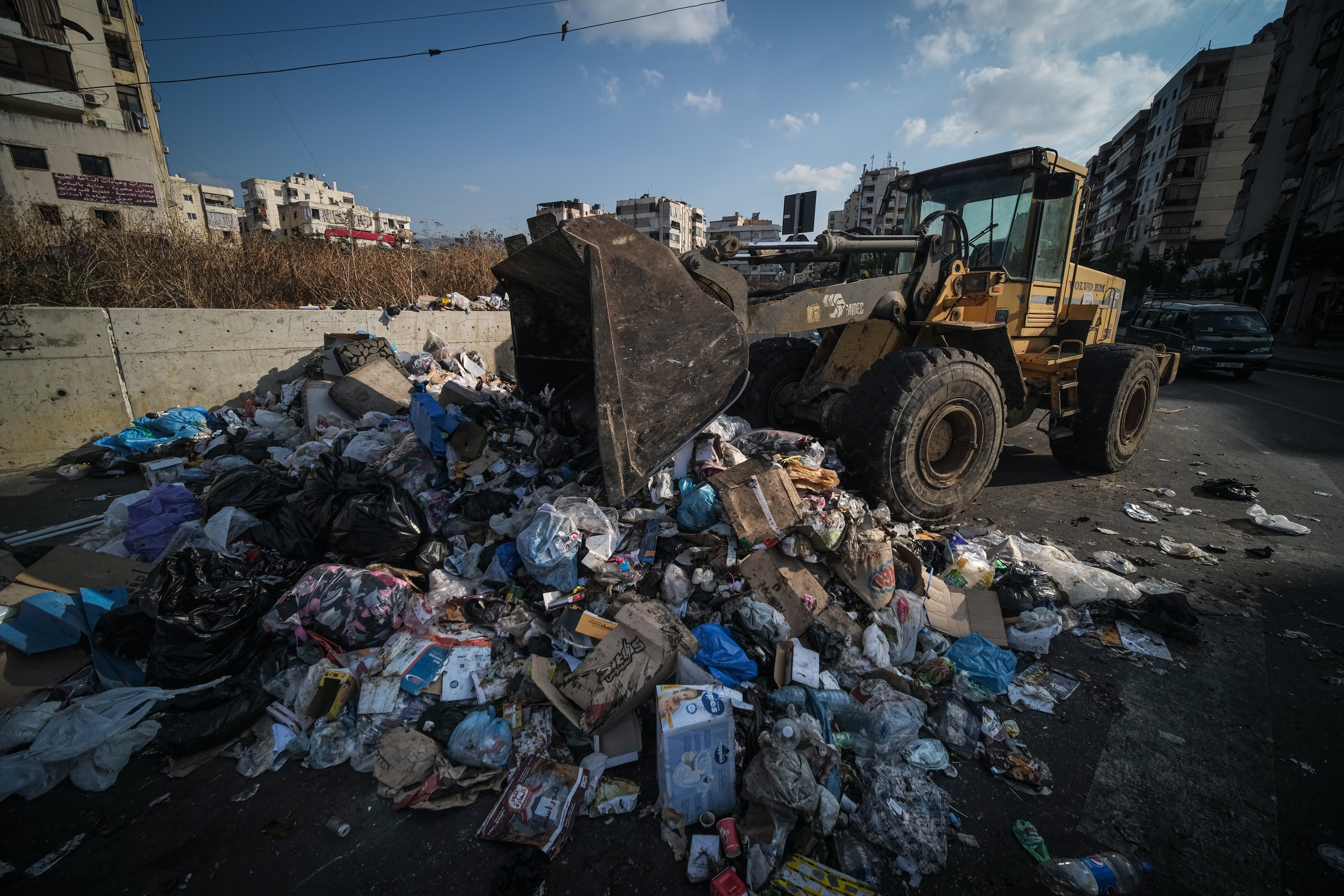 Waste pickers have long been a feature of Lebanon’s landscape, but their numbers and visibility have increased in light of the economic crisis. They include the very young and the very old, of all nationalities and genders. (Credit: João Sousa/L'Orient Today)
Waste pickers have long been a feature of Lebanon’s landscape, but their numbers and visibility have increased in light of the economic crisis. They include the very young and the very old, of all nationalities and genders. (Credit: João Sousa/L'Orient Today)
“We take the trash straight to the landfill because there is no longer a sorting facility,” said a Ramco representative.
The representative said pickers started appearing in the landfill after the port explosion.
But the Ramco representative thought this development was as much related to declining state capacity as to the closure of the sorting facility
Before the crisis, he said, “It was forbidden to enter, there was a state. There were people protecting the landfill, there were people taking decisions. Now there’s no one.”
Khalil says under the current government contracts both the waste collection company and the landfill operator have a financial incentive not to remove recyclables from the waste stream, because the government pays them by the ton.
The municipalities, which pay for waste collection, themselves have limited incentives to sort waste at the source, according to Khalil, because the money is deducted from their account at the central government’s Independent Municipal Fund, which she says means the money doesn’t come out of their own pockets.
Most experts and policymakers agree Lebanon’s waste management system is long-overdue for structural reform. But even amidst government paralysis, Maalouf dismisses a short-term fix of trying to keep pickers out of the landfill as a costly, losing proposition. “In my opinion, organizing the situation is better for everyone.”